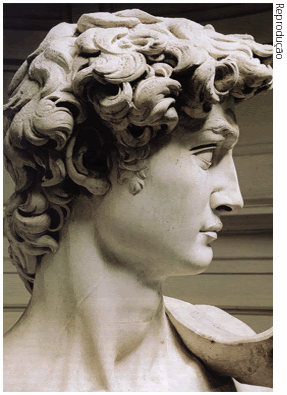John Coolidge Adams (born February 15.th 1947) is an American composer, with strong roots in Minimalism. He was born in Worcester, Massachusetts, and graduated from Harvard University in 1971. He studied with Leon Kirchner, and moved to California where he taught and conducted at the San Francisco Conservatory of Music for ten years.
His innovative concerts led to his appointment firstly as contemporary music adviser to Edo de Waart and the San Francisco Symphony, and then as the orchestra's composer-in-residence between 1979 and 1985, the period in which his reputation became established with the success of such works as "Harmonium" and "Harmonielehre".
Of John Adams's compositions, the best known and most widely discussed is his opera "Nixon in China", winner of the 1989 Grammy for "Best Contemporary Composition". With this opera, the composer brought contemporary history vividly into the opera house, pioneering an entire genre of post-modern music theatre.
Adams's second opera, "The Death of Klinghoffer" had its premiere at the Brussels Opera in 1991. Described by "Newsweek" critic Katrine Ames as "a work that fires the heart," it has also been seen in Lyon, Vienna, New York and San Francisco and was given its United Kingdom premiere by the BBC SO during the 2002 January Composer Weekend dedicated to Adams's music. Depicting the 1985 murder of American Leon Klinghoffer by Islamic terrorists on the cruise ship "Achille Lauro", the opera has been criticized by some Jewish and Muslim groups as not being even-handed. John Adams has said that much of the controversy may stem from the fact that the terrorists are not portrayed as “poster board villains” in the opera.
His next stage work, entitled "I Was Looking at the Ceiling and Then I Saw the Sky", is described as a "song play", scored for seven singers and an onstage band of eight instrumentalists.
Adams's newest opera, "Doctor Atomic", premiered October 1.st 2005. The action is centred on the very first test of the atomic bomb, and is mainly about J. Robert Oppenheimer.
Adams has in his mature work harnessed the rhythmic energy of Minimalism to an extraordinary harmonic palette and fertile orchestral imagination, with the strong influence of late-Romanticism evident.
For his Violin Concerto, Adams was awarded the 1995 Grawemeyer Award for Music Composition. Other honours include the California Governor's Award for Lifetime Achievement in the Arts, the Cyril Magnin Award for Outstanding Achievement in the Arts, and the rank of "Chevalier dans l'Ordre des Arts et des Lettres", awarded by the French Ministry of Culture.
John Adams became the BBC Symphony Orchestra's Artist in Association in June 2003. In his own words, "the position is sufficiently unstructured and flexible to allow any number of wild things to happen."
Adams's work "On the Transmigration of Souls", a choral work commemorating the September 11.th victims, won the 2003 Pulitzer Prize for Music. However, after winning the award Adams expressed "ambivalence bordering on contempt" since he felt that the prize had "lost much of the prestige it still carries in other fields" because "most of the country's greatest musical minds" have been ignored in favour of academic music.
In 2005, the premiere recording of "On the Transmigration of Souls", with Lorin Maazel conducting the New York Philharmonic, won three Grammy awards: Best Classical Album, Best Orchestral Performance, and Best Classical Contemporary Composition.
(Wikipedia: abridged and adapted)
… É por esta e outras que tais que continuo interessadíssimo na série "Grandes Músicas", que tem vindo a ser apresentada pela 2: e é da responsabilidade daquele cuja voz inconfundível conheço há anos da Antena 2 – António Cartaxo.
É dele a frase traduzida que intitula este édito e que ele, muito enfaticamente, muito poeticamente, repete no final de cada programa de "Grandes Músicas":
His innovative concerts led to his appointment firstly as contemporary music adviser to Edo de Waart and the San Francisco Symphony, and then as the orchestra's composer-in-residence between 1979 and 1985, the period in which his reputation became established with the success of such works as "Harmonium" and "Harmonielehre".
Of John Adams's compositions, the best known and most widely discussed is his opera "Nixon in China", winner of the 1989 Grammy for "Best Contemporary Composition". With this opera, the composer brought contemporary history vividly into the opera house, pioneering an entire genre of post-modern music theatre.
Adams's second opera, "The Death of Klinghoffer" had its premiere at the Brussels Opera in 1991. Described by "Newsweek" critic Katrine Ames as "a work that fires the heart," it has also been seen in Lyon, Vienna, New York and San Francisco and was given its United Kingdom premiere by the BBC SO during the 2002 January Composer Weekend dedicated to Adams's music. Depicting the 1985 murder of American Leon Klinghoffer by Islamic terrorists on the cruise ship "Achille Lauro", the opera has been criticized by some Jewish and Muslim groups as not being even-handed. John Adams has said that much of the controversy may stem from the fact that the terrorists are not portrayed as “poster board villains” in the opera.
His next stage work, entitled "I Was Looking at the Ceiling and Then I Saw the Sky", is described as a "song play", scored for seven singers and an onstage band of eight instrumentalists.
Adams's newest opera, "Doctor Atomic", premiered October 1.st 2005. The action is centred on the very first test of the atomic bomb, and is mainly about J. Robert Oppenheimer.
Adams has in his mature work harnessed the rhythmic energy of Minimalism to an extraordinary harmonic palette and fertile orchestral imagination, with the strong influence of late-Romanticism evident.
For his Violin Concerto, Adams was awarded the 1995 Grawemeyer Award for Music Composition. Other honours include the California Governor's Award for Lifetime Achievement in the Arts, the Cyril Magnin Award for Outstanding Achievement in the Arts, and the rank of "Chevalier dans l'Ordre des Arts et des Lettres", awarded by the French Ministry of Culture.
John Adams became the BBC Symphony Orchestra's Artist in Association in June 2003. In his own words, "the position is sufficiently unstructured and flexible to allow any number of wild things to happen."
Adams's work "On the Transmigration of Souls", a choral work commemorating the September 11.th victims, won the 2003 Pulitzer Prize for Music. However, after winning the award Adams expressed "ambivalence bordering on contempt" since he felt that the prize had "lost much of the prestige it still carries in other fields" because "most of the country's greatest musical minds" have been ignored in favour of academic music.
In 2005, the premiere recording of "On the Transmigration of Souls", with Lorin Maazel conducting the New York Philharmonic, won three Grammy awards: Best Classical Album, Best Orchestral Performance, and Best Classical Contemporary Composition.
(Wikipedia: abridged and adapted)
… É por esta e outras que tais que continuo interessadíssimo na série "Grandes Músicas", que tem vindo a ser apresentada pela 2: e é da responsabilidade daquele cuja voz inconfundível conheço há anos da Antena 2 – António Cartaxo.
É dele a frase traduzida que intitula este édito e que ele, muito enfaticamente, muito poeticamente, repete no final de cada programa de "Grandes Músicas":
– "A música é um romance sem fim…"
E não é?…
RIC
E não é?…
RIC





















18 comentários:
É sem duvida! A música mexe com todos os nossos sentimentos, molda-se aos nossos estados de espirito.A música é mágica!
Abraço!
Desconhecia totalmente és compositor. Já tentei ver se encontrava alguma coisa na "mula"... mas nada!
Quanto ao que o Bernardo diz sobre a música e os estados de espírito (ou alma), não posso estar mais de acordo e estou hoje, mais uma vez, a verificar esse facto - tenho ouvido apenas música de um determinado género...
O bernardo já disse tudo, mais não digo...
De viris pulchris et aliis et de musica gustis non est disputandum!
Tunc Hipponensis Augustinus (alter magnus malucus) in " DE MUSICA LIBRI SEX" dixit:
"Quid erit homo Qui amat hominem,
Si amet in eo Fragile quod est?
Amet igitur Animum hominis,
Et erit homo Aliquid amans "
Ridendo curat (a)mores!
O Lampejo tirou da boca dele as palavras do Bernardo, e eu já disse!
Ao acabar de ler este édito, lembrei-me das palavras de François Guizot : " A música oferece à alma uma verdadeira cultura íntima, e deve fazer parte da cultura de um povo".
Algum erro na citação, perdoa/perdoem. A memória já não é o que era...
Bom domingo!
Beijinho :-)
I was raised about 15 miles outside of Worcester, Mass. and although there is not much difference in our ages, our paths unfortunately never crossed.
His latest collaboration with Peter Sellars is called "A Flowering Tree" which premiered at the Vienna in November at the New Crowned Hope festival celebrating the 250th anniversary of Mozart’s birth. The opera will be travelling to Berlin, San Francisco (March 2007), London, Amsterdam and New York.
I found this brief description of "A Flowering Tree" online.
"Picking up the Mozart theme, the new opera has parallels with The Magic Flute through its adaptation of a folk tale, here from Southern India, describing a young couple undergoing rituals and trials to discover the transfiguring power of love. Adams sets the tale simply, with a small cast of three singers and chorus, conjuring the magical atmosphere with an orchestra including recorders, harp and celesta, not least in the scenes where the heroine of the tale transforms herself into the flowering tree."
Enjoy the remainder of your weekend.
DON~
Olha, não tem nada a ver...
Mas a tua gatinha é muito gira. ;)
A música fareja a vida. :)
Olá Bernardo! Umas vezes molda-se aos nossos estados de espírito, como dizes, outras vezes molda-nos magicamente os estados de espírito...
Abraço! :-)
Olá Tongzhi! Eu também desconhecia, até à apresentação do António Cartaxo...
É comum procurarmos aninhar-nos no género musical que mais nos parece de acordo com o estado de espírito/alma do momento... Não há qualquer magia...
Abraço! :-)
Olá Lampejo! Eu também já respondi ao Bernardo...
:-)
Pois é, Aracnauta! Nem homens belos nem gostos musicais se discutem...
Espero bem que sim! Que a rir se curem os costumes e os amores... Mas acho muito difícil.
Quanto à citação, teria sido simpático fornecer uma tradução...
:-)
Olá João C.! ... E eu já respondi a ambos...
:-)
Olá Carla! A tua citação fez-me pensar nos dois reis melómanos que tivemos... Como tudo se esfumou, no que diz respeito a uma séria educação musical...
Espero que tenhas tido um bom Domingo!
Beijinho! :-)
Hello dear Don! Thank you so very much for the information about «A Flowering Tree»! I believe Wikipedia must be a little bit behind...
As a future perspective I do like that ending: the change into a flowering tree. May we all be closer to Nature!
Best wishes! :-)
Have yourself a great weekend!
Olá Me! É, não é?... Eu gosto muito dela, também...
:-)
Olá João M.! Sim, acredito que o faça, de uma forma sinestésica, sem dúvida...
Abraço! :-)
Enviar um comentário